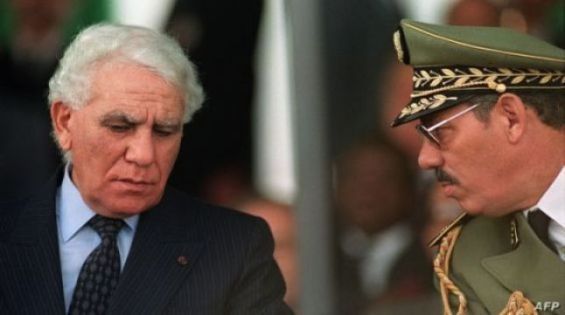A declassified CIA document, dated August 1985, sheds light on differences between the Algerian military and President Chadli Bendjedid in the 1980s regarding the Western Sahara conflict. The document states: «Their historically troubled relationship [Algeria-Morocco] is at a low level» due to the dispute and King Hassan II's alliance with Libya.
The document stresses that Algeria «does not want the situation to deteriorate to such a point that large-scale military hostilities are likely». As for the Western Sahara issue, the CIA document predict that «small skirmishes probably will continue with little warning along along Morocco’s defensive berm».
Algeria's goals
According to the CIA document, Algeria seeks «to keep pressure on King Hassan (Hassan II) to force him to negotiate an arrangement allowing some Saharan autonomy».
«In our judgment, Algeria's continued support for the Polisario, and its diplomatic wrangling with Rabat, are the primary elements in Benjedid’s program to harass Hassan (II) for his 'intransigence' on the Western Sahara problem», argues the document.
The CIA estimates that «Algerians probably believe that they can make the Western Sahara conflict so costly that Hassan II will at some point agree to some Saharan autonomy. Algeria may also anticipate that its support for the Polisario will deter Hassan from a more ambitious scheme to resurrect the idea of a ‘Greater Morocco’, which includes not only the Western Sahara, but also Mauritania and parts of southwestern Algeria».
.jpg)
According to the CIA, the Algerian government does not want a major military conflict with Morocco, because «its leadership almost certainly realizes that the rugged terrain along the border would limit military action that could lead to cross-border strikes by Algeria that could result in a protracted war of attrition».
«Algiers may also realize that Morocco has a clear advantage along the southern partion of the border, and could overrun Tindouf, the only significant Algerian settlement in the southwest and the political and military headquarters of the Polisario. Rabat could also launch air strikes against Algeria's petroleum and natural gas facilities».
Internal Algerian disagreements over Sahara
The document highlights a rift between Bendjedid and the military. The CIA reports that the Algerian President was «under pressure from his senior army officers to take more forceful action against Morocco». The military criticizes his «refusal to prevent Rabat's completion of defensive berms» and desires «more forceful action».
Meanwhile, Leftist officers reportedly oppose Bendjedid's Western alliances and want to bolster the Polisario. «These officers want to give the Polisario guerillas more weapons and have them prosecute the war with Morocco with greater vigor», states the same document.
The document touches upon Morocco's accusations that Algeria trained 17 Moroccan dissidents and facilitated their infiltration into the kingdom, saying: «Bendjedid may have decided to sponsor Moroccan dissident activity as a concession to these officers».
«An alternative scenario is that the dissidents were allowed to reside in Algeria, but that their plans and activities were not closely monitored by the government. Senior security and military officials opposed to Bendjedid may have sponsored the infiltrations, expecting them to fail, to embarrass Bendjedid by illustrating to foreigners the ‘contradictions’ in the moderate foreign policy image he has sought to establish».
Algeria's challenges
The document notes that Algeria's leaders believe their assistance to the Polisario is necessary to counter what they see as Moroccan expansionism, adding that «although Algeria has won the political battle thus far in the OAU and nonaligned movement by gaining widespread diplomatic recognition for the SADR, its prospects on the battlefield - where the outcome will be really determined - are grim».
«Morocco's commitment to mobilizing 80,000 men and construction a defensive perimeter during the past two years has proven effective in defending the territory from attacks by the 3,500 Polisario. Moreover, King Hassan's political union with Libya has created a new potential threat on Algeria's eastern frontier, and Algeria will now have to consider possible hostile action from Libya if it were to become embroiled with Morocco in a crisis».
Algeria has tried «different, and often contradictory, strategies in its struggle to counter these diplomatic and military setbacks. President Bendjedid earlier this year placed emphasis on focused on finding a political solution, almost certainly realizing that the Moroccan berm campaign precludes any semblance of a military victory by the Polisario».





 chargement...
chargement...












